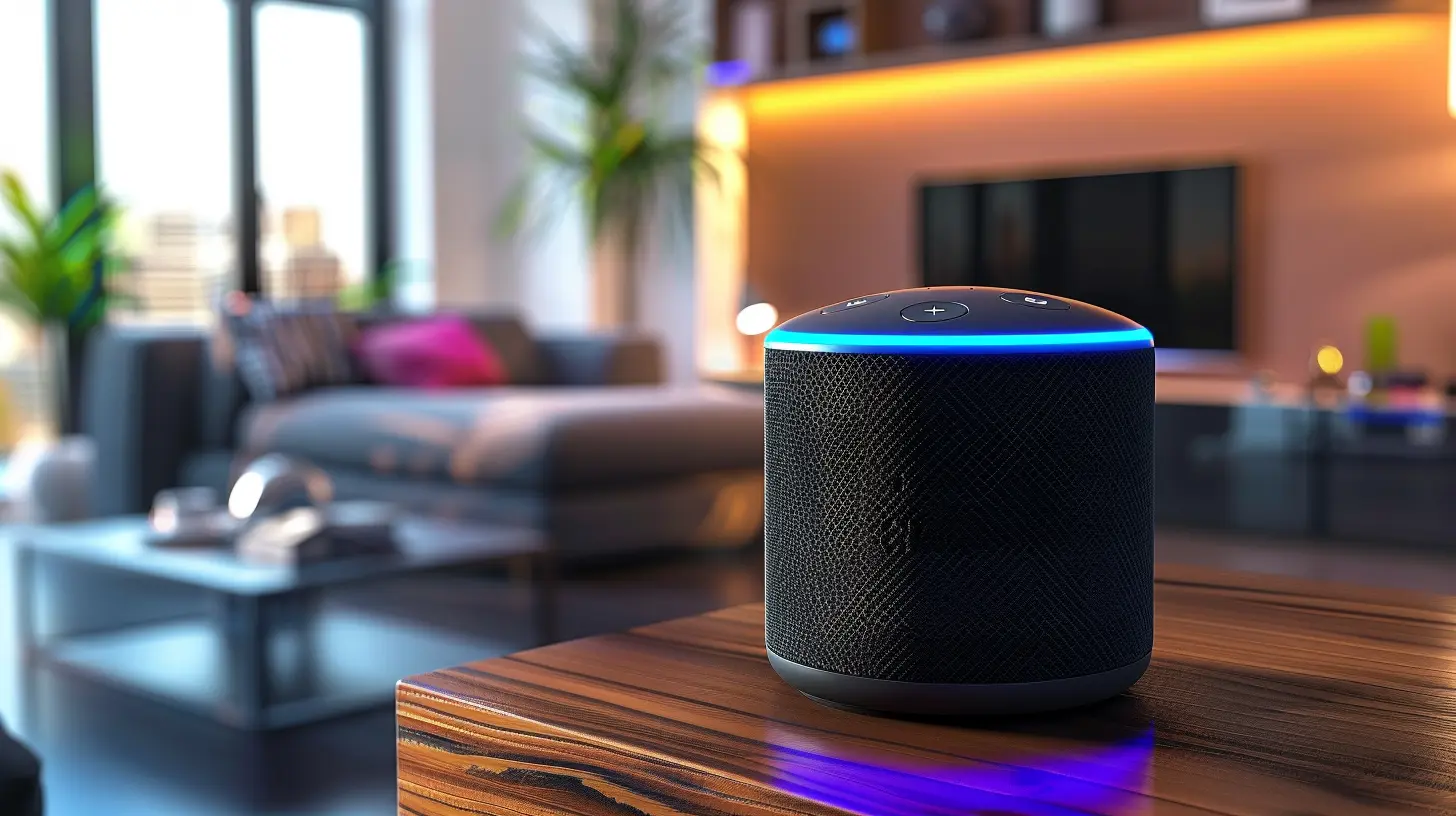How Virtual Assistants Are Improving the E-Commerce Experience
13 June 2025
Let’s be honest—shopping online used to feel a little like a gamble. You’d scroll through endless product listings, hunt down reviews, shoot off emails to customer service, and cross your fingers that your package would actually show up on time. But lately, something’s changed. E-commerce doesn't feel as clunky as it used to. It's smarter, smoother, and more personalized. So, what’s behind this upgrade?
Two words: virtual assistants.
These digital game-changers are quietly reshaping how we browse, shop, and interact with online stores. From answering questions in real time to helping us find exactly what we need, virtual assistants are making the e-commerce experience ridiculously seamless—and honestly, kind of addictive.
In this article, we’re diving deep into how virtual assistants are improving the e-commerce experience. So grab a coffee (or your favorite caffeine-free replacement) and let’s break it down.
What Exactly Is a Virtual Assistant?
First things first—what are we even talking about when we say “virtual assistant”?In the e-commerce world, a virtual assistant (VA) is usually an AI-powered tool that helps customers and businesses interact more effectively. Think of it like the helpful sales associate you bump into at a store—only this one lives online and works around the clock. VAs come in many forms: chatbots, voice assistants (like Alexa or Siri), and even behind-the-scenes data-crunching tools that help tailor your shopping experience.
They're not just text boxes with pre-programmed responses—they’re smart, adaptable, and getting better every day thanks to advancements in machine learning and natural language processing.
The Old Way vs. The New Way
Before Virtual Assistants...
Picture this: You're shopping for a new pair of sneakers. You land on a site, get overwhelmed by the options, and can’t find sizing info. You send an email to customer service, wait 48 hours for a reply, and by the time you get an answer, you’ve either lost interest or bought shoes from a competitor. Frustrating, right?With Virtual Assistants...
Now imagine this: You're browsing for sneakers and a chatbot pops up asking if you need help. You ask about size availability and get an instant, accurate response. It even recommends styles based on your browsing history. Before you know it, you're at checkout.That’s not just better—it’s transformational.
1. 24/7 Customer Support That Never Sleeps
One of the biggest pain points in e-commerce? Waiting for help.Virtual assistants are like having a customer service team that works 24/7, never takes a break, never calls in sick, and always responds instantly. Whether it's 3 PM or 3 AM, they’re ready to help solve problems, answer questions, or even guide you through returns.
And the best part? They don’t get annoyed. Ever.
This kind of round-the-clock availability helps reduce cart abandonment rates and boosts customer loyalty. Because nothing says “we value your business” like being there whenever customers need a hand.
2. Personalized Product Recommendations
You know that moment when Netflix recommends the perfect show, and you're like, “How did they know?” Virtual assistants do the same in e-commerce.These smart tools analyze your shopping behavior, past purchases, and even your browsing patterns to suggest products you’ll actually want—not just random stuff. It’s like having a personal shopper that totally gets your vibe.
And the more you interact with them, the better they understand you. Over time, this level of personalization helps create a sticky customer experience that keeps people coming back.
3. Smarter Search and Navigation
Let’s be real—searching on some e-commerce sites feels like looking for a needle in a haystack. You type in "running shoes" and get results for socks, hoodies, and who knows what else.Virtual assistants upgrade the search bar into a true digital concierge. They understand what you mean, not just what you type. You can ask questions like, "Show me waterproof hiking boots under $100" and actually get relevant results.
This natural language processing (NLP) capability makes shopping feel less like a chore and more like a conversation.
4. Voice Shopping is Becoming a Thing
"Alexa, buy more coffee." Sound familiar?Voice-enabled virtual assistants aren't just futuristic toys anymore—they’re becoming a legit way to shop. With more people using smart speakers and voice search, integrating voice assistants into e-commerce is a no-brainer.
They offer convenience for busy shoppers, people with disabilities, or anyone who just loves talking more than typing. And as voice recognition tech continues to improve, this trend is only going to grow.
5. Easy Returns and Order Tracking
Returns are one of the biggest headaches in online shopping. But virtual assistants are turning that around.Instead of jumping through hoops—digging through emails, filling out forms, waiting on hold—customers can just ask the assistant: “How do I return my order?” or “Where’s my package?”
In seconds, they get tracking info, return instructions, or even automatic pickup scheduling. It’s fast, painless, and puts control back in the shopper's hands.
6. Better Engagement = Better Conversions
Here’s a little secret: Engaged customers buy more.Virtual assistants are pros at keeping customers engaged. They answer questions right away, help overcome objections, and even offer discount codes at the perfect moment (like when you’re about to abandon your cart).
This level of proactive engagement leads to higher conversion rates, lower bounce rates, and way fewer lost sales. And what e-commerce brand wouldn’t want that?
7. Cost-Effective Customer Service
Hiring and training human reps is expensive. We're talking salary, benefits, training, equipment—the whole nine yards.Virtual assistants dramatically cut those costs. You can scale customer support without ballooning your payroll. And here's the kicker—they can handle thousands of conversations at once without dropping the ball.
For small businesses, this can be a game-changer. You get enterprise-level support without the enterprise-level budget.
8. Multilingual Support That Opens Global Doors
Thinking of going international with your e-commerce brand?Virtual assistants can help you support customers in multiple languages, no human translators needed. AI-powered VAs can communicate with users in Spanish, French, German—you name it. This breaks down language barriers and opens up massive new markets.
Talk about scaling smart.
9. Boosting Customer Loyalty Through Consistency
Ever dealt with five different customer support reps and had to re-explain your issue every time? Annoying, right?Virtual assistants offer consistent, reliable interactions every time. They remember past conversations, track order history, and offer personalized greetings. That continuity builds trust, which converts into loyalty.
And in a crowded e-commerce space, loyalty is everything.
10. They’re Getting Smarter (Thanks, AI)
The beauty of virtual assistants is that they’re constantly learning.Thanks to AI and machine learning, they analyze every interaction, get smarter over time, and adapt to user preferences. They start to sound less robotic and more like helpful humans who know exactly what you need.
We're not talking about basic scripts anymore—these assistants are evolving, and the future looks seriously exciting.
Real-World Examples of Virtual Assistants in E-Commerce
Still not sold? Let’s look at how some big players are using virtual assistants to crush the e-commerce game:- Amazon Alexa: Users can add items to their cart, track packages, and reorder with just voice commands.
- H&M's Chatbot: Helps users find fashion ideas based on their preferences and style.
- Sephora's Virtual Artist: A beauty assistant that lets you try on makeup virtually and recommends products.
- eBay’s ShopBot: A chatbot that helps users find the best deals by understanding their needs.
If the biggest brands are doing it, there’s a reason—because it works.
Are There Any Downsides?
Let’s keep it real. Virtual assistants aren’t perfect.Sometimes they misunderstand questions. Sometimes they can’t handle complex requests. And yes, some users still prefer talking to a real human being.
But the tech is improving fast. And as businesses strike the right balance (using VAs for simple tasks and humans for complex issues), the user experience only gets better.
The Bottom Line
Virtual assistants are not just a trend—they’re a total upgrade to the way we shop online. They're making e-commerce more accessible, more helpful, and way more personalized. They save time, reduce frustration, and help businesses build better relationships with their customers.Whether you're a shopper tired of endless menus or a business owner looking to level up your service game, virtual assistants are the secret weapon you didn’t know you needed.
So next time you're chatting with a pop-up on your favorite website, don’t roll your eyes. That digital helper is doing a whole lot more than you think.
all images in this post were generated using AI tools
Category:
E CommerceAuthor:

Adeline Taylor
Discussion
rate this article
2 comments
Drew Harper
Virtual assistants are revolutionizing e-commerce by enhancing customer engagement, streamlining processes, and personalizing shopping experiences efficiently.
June 21, 2025 at 4:01 AM

Adeline Taylor
Thank you for your comment! I completely agree—virtual assistants are indeed transforming e-commerce by making interactions more engaging and personalized.
Dean Martinez
Virtual assistants are revolutionizing e-commerce by personalizing customer interactions, streamlining processes, and enhancing user experience, ultimately leading to increased satisfaction and loyalty in a competitive market.
June 14, 2025 at 2:56 AM

Adeline Taylor
Thank you for your insightful comment! I completely agree that virtual assistants are indeed transforming e-commerce by enhancing personalization and efficiency, significantly boosting customer satisfaction and loyalty.


